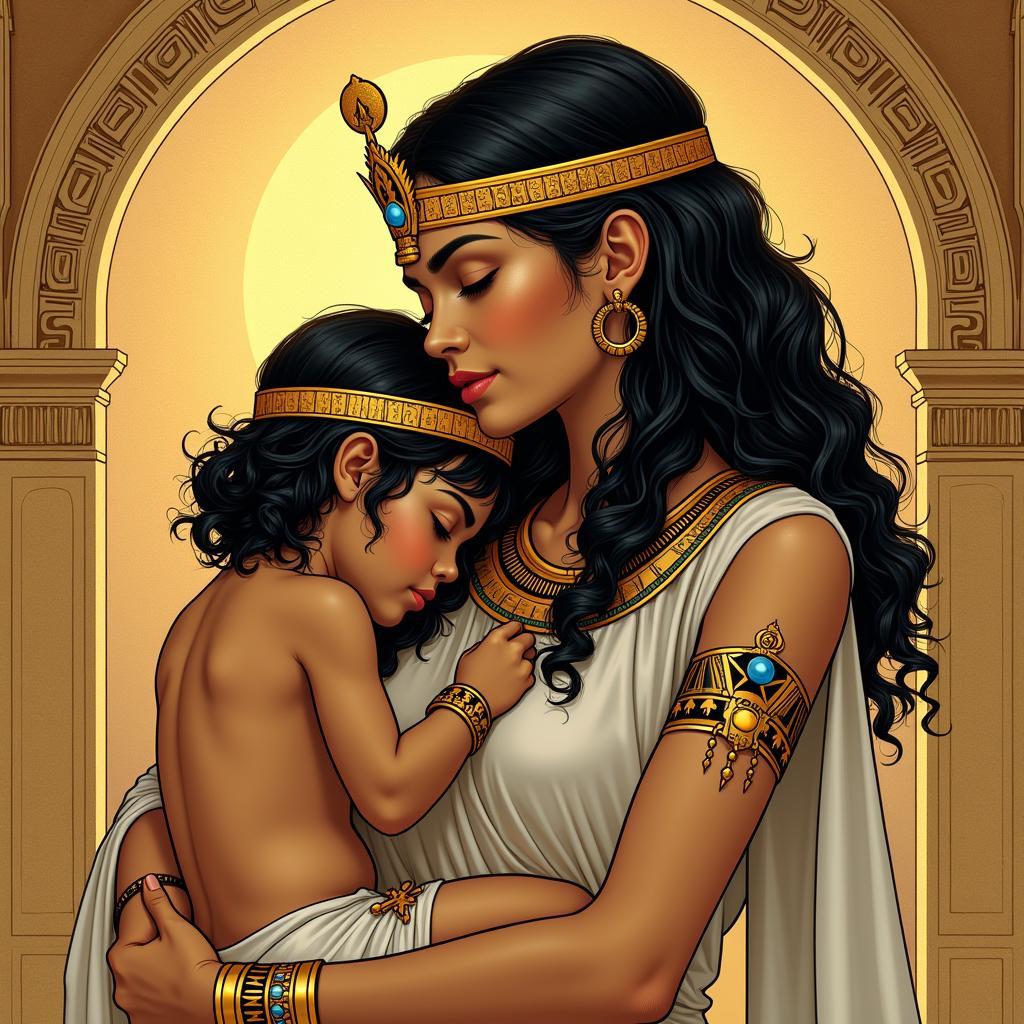Unveiling the Mysteries of the African Elephant Mask
The African Elephant Mask, a powerful symbol of tradition and spirituality, holds a captivating place in the rich tapestry of African art. These intricate carvings, often adorned with vibrant colors and symbolic details, offer a glimpse into the deep-rooted connection between humans and elephants across various African cultures. From their use in ceremonial dances to their representation of ancestral wisdom, exploring the significance of these masks unlocks a deeper understanding of African heritage. See some beautiful African art paintings of animals for more insights into the continent’s artistic expressions.
The Significance of the African Elephant Mask in Different Cultures
African elephant masks are not monolithic; their meaning and purpose vary significantly across different cultures. For some, the elephant represents strength, wisdom, and leadership. These masks are often used in rituals celebrating chieftainship and invoking ancestral guidance. In other cultures, the elephant symbolizes fertility, prosperity, and protection. The masks might be worn during harvest festivals or ceremonies seeking blessings for the community. The diversity of meanings highlights the rich and nuanced cultural landscape of Africa.
The Craftsmanship Behind the African Elephant Mask
Creating an African elephant mask is a meticulous process passed down through generations of skilled artisans. Traditional materials like wood, ivory (though increasingly less common due to conservation efforts), and various natural pigments are used to bring these masks to life. The carver imbues each mask with unique characteristics, reflecting their own artistic style and the specific cultural context of the piece. Do you want to color your own African elephant mask? Check out this African elephant mask colouring picture.
The intricate details carved into the mask – from the wrinkles around the elephant’s eyes to the curve of its trunk – are not merely aesthetic choices. They often carry symbolic weight, representing specific aspects of the elephant’s spirit or power. For example, the large ears of the elephant might be emphasized to signify its ability to listen attentively to the needs of the community.
What Does an African Elephant Mask Represent?
The symbolism of the African elephant mask is multifaceted and deeply intertwined with the beliefs and values of the community. Beyond the common themes of strength and wisdom, the elephant mask can also represent:
- Ancestral Connection: The elephant, with its long lifespan, is often seen as a link between the living and the ancestors. Masks worn in ceremonies can invoke the wisdom and protection of those who came before.
- Community Harmony: The elephant’s social nature is mirrored in the communal use of the masks. They are often used in ceremonies that bring people together, reinforcing social bonds and promoting unity.
- Environmental Balance: In some cultures, the elephant is a symbol of the delicate balance of nature. The mask serves as a reminder of the importance of respecting and protecting the natural world. Are you interested in the value of African ivory carvings? Learn more about African ivory carvings value.
Where Can I Buy an African Elephant Mask?
Finding authentic African elephant masks requires careful consideration. While many markets cater to tourists, ensuring ethical sourcing and supporting local artisans is crucial. Look for reputable galleries or dealers specializing in African art. These sources can often provide information about the origin and cultural significance of the mask, ensuring you’re acquiring a genuine piece of art. You can find African animal masks for sale in various online marketplaces and specialized stores.
“Authentic African art is not just an object; it’s a story, a tradition, a piece of living history,” says Dr. Anika Kwame, a renowned anthropologist specializing in African art. “When you acquire a mask, you’re becoming a custodian of that history.”
Conclusion: The Enduring Legacy of the African Elephant Mask
The African elephant mask continues to fascinate and inspire, serving as a testament to the enduring power of art and tradition. From its symbolic richness to its intricate craftsmanship, the mask offers a profound window into the diverse cultures of Africa. By understanding the significance of these masks, we gain a deeper appreciation for the continent’s artistic heritage and the complex relationship between humans and the natural world. Explore the rich world of African elephant masks and discover the captivating stories they tell. You might be interested in learning more about an African country with i.
FAQ
-
What are African elephant masks typically made of?
Traditional materials include wood, ivory (though less common now), and natural pigments. -
What do the ears on an African elephant mask symbolize?
Often, large ears symbolize the elephant’s attentiveness and ability to listen to the community. -
Are African elephant masks still used in ceremonies today?
Yes, in some cultures, these masks continue to play a vital role in traditional ceremonies. -
How can I tell if an African elephant mask is authentic?
Purchasing from reputable galleries or dealers specializing in African art is recommended. -
What is the cultural significance of the elephant in Africa?
Elephants often symbolize strength, wisdom, leadership, fertility, prosperity, and environmental balance. -
Why are elephant masks important in African culture?
They represent a connection to ancestors, community harmony, and the balance of nature. -
What is the process of creating an African elephant mask?
Skilled artisans carve the masks from wood or other materials, adding intricate details and symbolic elements.
Need help with African Art?
When you need assistance, please contact us by phone at +255768904061, email [email protected], or visit our address at Mbarali DC Mawindi, Kangaga, Tanzania. We have a 24/7 customer service team.

